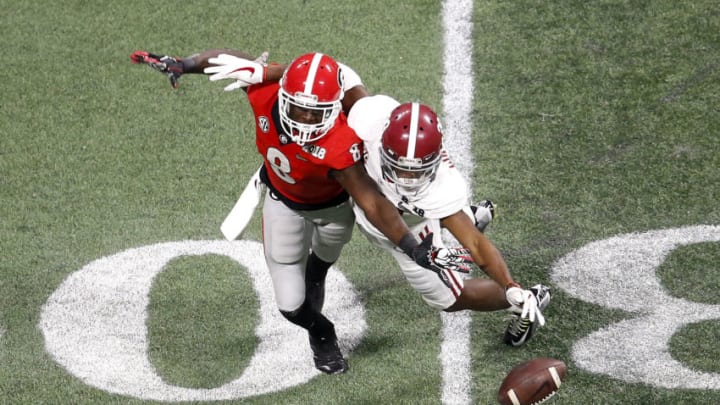The Olympics long celebrated an ethos of amateurism. The same is touted by the NCAA and other apologists of college football. But how do they compare?
Amateurism as a concept has been around since the late 18th century. As distinguished from professionals, amateurs are those who compete for the love of the game. It is a concept that has long been extolled as a virtue in a range of sports.
With the Winter Olympics starting soon after National Signing Day, the concept was on the mind of this Sunday Morning Quarterback for much of the past week. On this Sunday morning, as the last events of the Olympic day wrap up in South Korea, let’s think for a bit about amateurism.
How does the textbook definition of amateurism compare to what it really represents in practice? What similarities and differences exist between Olympic amateurism and collegiate amateurism? Ultimately, what we find is that amateurism in practice always fall short of the ideal.
So let’s dive in a for a truncated edition of the column this week in order to think a bit about what has been an outmoded concept since at least the early 20th century.
What exactly constitutes amateurism?
In current practice, amateurism describes athletes who are not overtly professional. In some cases, this denotes athletes whose primary occupation falls outside the purview of their sport. In other cases, this merely means that an athlete performs without compensation.
]The general tone of the term is one that differentiates those who compete for the love of the game instead of for their daily pay. In other cases, amateurship is predicated on the idea that LIke
Long before professional athletes such as the US Dream Team in basketball, it would be hard to argue that Olympic athletes were truly amateur. Subsidized by national Olympic committees, athletes have also historically been given make-work jobs in the army or police force as a means of providing funding.
Similarly, amateurism is a term thrown around often when it comes to collegiate sports. But once scholarships and stipends became commonplace, declaring collegiate athletes as fully amateur becomes problematic.
How are Olympians and college stars compensated?
Olympians are compensated in various ways. National Olympic federations and/or national governing sports bodies have historically subsidized Olympics participation. Athletes can also sign contracts to advertise products and receive gear and compensation, if they are good enough to negotiate an endorsement deal for themselves.
It is this sort of model that has often been touted for college athletes. While there is still unease about paying athletes directly from university athletic departments, endorsements with third parties would maintain the veneer of amateurism as it stands between college and collegian.
Ultimately, though college athletes are already something other than amateur. The academic scholarship offered in exchange for representing a university is itself a form of payment.
That erases the potency of much of amateur apologists’ arguments. Athletics are no more pure when athletes are uncompensated. And, ultimately, even those classified as amateurs in either the Olympics or in college have for much of history received some form of compensation.
So what is the point of amateurism?
Let’s face it. Amateurism is an ideal that looks great on paper. We as fans love sport not because of the size of the athlete’s paycheck but by what he or she is able to do within the competition itself. And that entertainment is no less present when the athlete is compensated.
After all, college football fans are no less rabid about their favorite teams for knowing that the players are compensated with scholarships, academic support, weight and strength training, nutrition advice, and the myriad other ways that compensation can be something other than straight lucre.
Next: Latest pre-Combine first round NFL Mock Draft
Amateurism, ultimately, is an illusory concept for which the terms of the discourse are effectively impossible to realize in real life. Keep that in mind, not only during the current Winter Olympics but also when thinking about the newest crop of young football players to sign National Letters of Intent.
